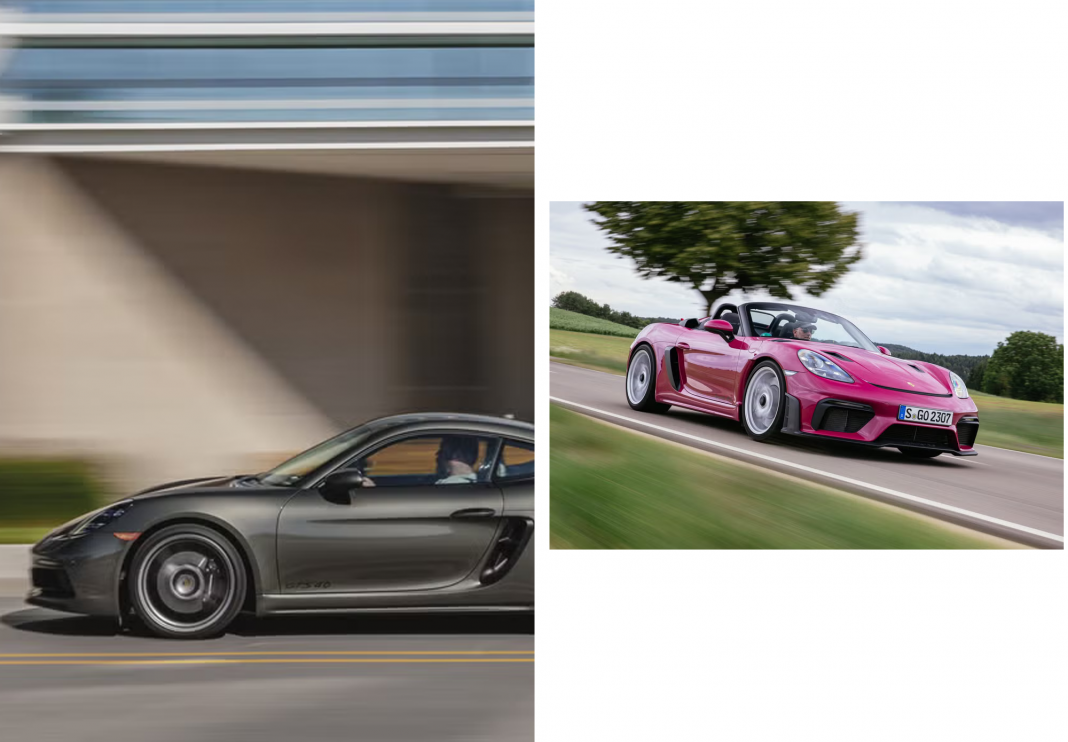After decades of thrilling drivers worldwide, Porsche’s iconic 718 Boxster and Cayman sports cars will see their internal combustion chapter close this October. While fully electric successors are on the horizon, the announcement marks a poignant turning point for enthusiasts and the industry alike. Here’s what you need to know about the end of the combustion 718 era and what lies ahead.
A legendary run comes to a close
The Porsche 718 Boxster and Cayman have been cornerstones of Porsche’s sports car lineup for years, captivating driving purists with their mid-engine balance, sharp handling, and potent flat-four and flat-six engines. Now, a Porsche spokesperson has confirmed what many feared: production of all internal combustion 718 variants, including the high-performance RS models, will cease in October 2025.
This decision is not driven by dwindling sales—the 718 remains popular—but rather by the brand’s strategic shift towards electrification. Porsche CEO Oliver Blume recently stated at the company’s annual general meeting that electric successors are coming “in the medium term,” signaling a clear vision for the future that prioritizes sustainable performance.
For fans of the gasoline-powered 718, the news lands like a gut punch. The 718 platform has long been synonymous with the pure sports car experience, offering an engaging drive that is both accessible and exhilarating. With the sunset approaching for these models, now might be the ideal time for enthusiasts to visit dealerships and secure a piece of Porsche history.

The shift to electric performance
Porsche’s production manager, Albrecht Reimold, spoke candidly about the upcoming changes in an interview with Automobilwoche. According to Reimold, the internal combustion 718 twins will end production mid-2025 to make room for electric replacements. These forthcoming models are rumored to be available in both coupe and convertible formats, maintaining the spirit and body styles that have defined the 718 range.
Reimold also offered reassurance to worried fans: having driven the new all-electric 718 prototype, he guarantees the driving fun inherent to the 718 will endure in the EV era. Early glimpses of Porsche’s 1073-horsepower 718 Cayman GT4 ePerformance race car suggest that electric powertrains can deliver the same thrill, if not more, as their combustion predecessors.
This transition underscores a broader industry trend where traditional sports car makers balance heritage and innovation. Porsche’s commitment to electrification doesn’t mean sacrificing performance but evolving it to meet modern environmental standards and consumer expectations.

The impact and timing across markets
Interestingly, while the internal combustion 718’s production ends globally by the end of this year, U.S. customers may experience a slightly more gradual transition. Recent regulatory changes in the European Union, particularly new cybersecurity mandates, forced Porsche to discontinue the combustion 718 and the gasoline Macan earlier than anticipated in that region.
According to Reimold, these regulations, combined with the limited availability of parts for gasoline-powered models, accelerated the phase-out in Europe. Meanwhile, Porsche aims to smooth the transition in markets like the U.S., offering enthusiasts a bit more time to savor the combustion-engine 718 before it becomes a part of history.
This staggered phase-out highlights the complex regulatory landscape automakers navigate as they steer towards zero-emission vehicles. For Porsche, balancing compliance and customer expectations remains a critical challenge in this evolution.

What’s next for the 718 legacy?
The all-electric 718’s arrival is shrouded in mystery but accompanied by high expectations. The new electric sports cars will face the challenge of living up to the reputation of their gasoline ancestors—a tough act given the 718’s role in shaping Porsche’s identity as a maker of driver-focused mid-engine machines.
We anticipate the new EV 718 will retain the core traits that made the Boxster and Cayman beloved: agility, responsiveness, and a connection between car and driver. Early hints, such as the GT4 ePerformance’s staggering output and dynamic capabilities, suggest Porsche is ready to redefine what a sports car can be in the electric age. Until then, drivers will cling to their combustion 718s, savoring every rev and shift up to the 7,800 rpm redline—a last hurrah before an electrified future takes the wheel.
The end of the internal combustion Porsche 718 Boxster and Cayman marks a pivotal moment not just for the brand but for the sports car community at large. While it’s hard to say goodbye to these petrol-powered icons, the promise of electrification offers exciting possibilities. For those longing to experience or own a combustion 718, the clock is ticking. October 2025 will close the book on this chapter, but the spirit of the 718 will undoubtedly live on—reimagined and electrified—for a new generation of enthusiasts.
Porsche’s journey from classic mid-engine roadsters to cutting-edge electric sports cars embodies the future of driving passion. As the industry races forward, one thing remains certain: the 718 legacy, in all its forms, will continue to inspire.
Specifications at a Glance:
Models: Porsche 718 Boxster and Cayman (including RS variants)
End of Internal Combustion Production: October 2025
Electric Successors: Expected mid-2025, coupe and convertible variants rumored
Regulatory Influence: Accelerated phase-out in the EU due to cybersecurity laws
Key Quote: Porsche CEO Oliver Blume – electric 718s to arrive in “medium term”



